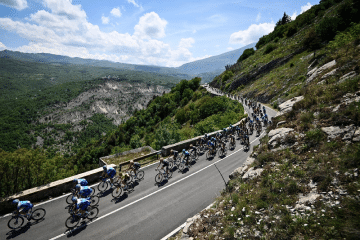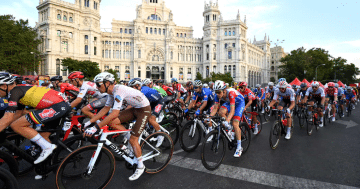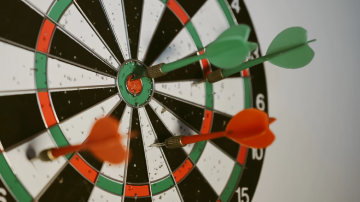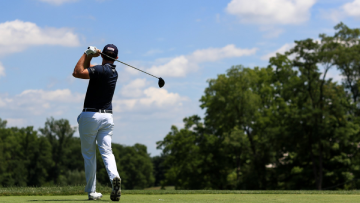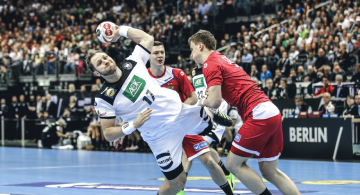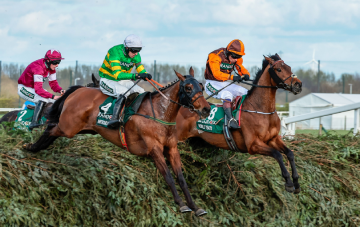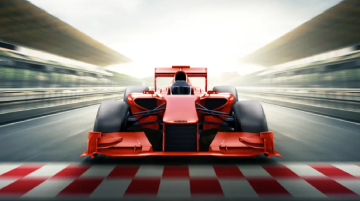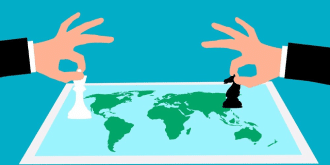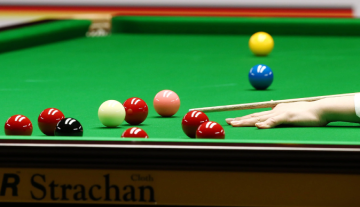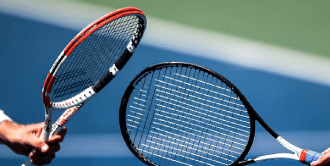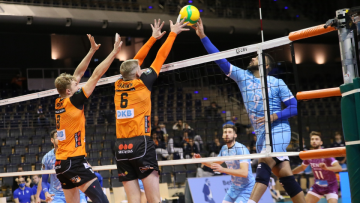Enjoy the Tour de France with GOSUBETTING, where the energy of the world’s most prestigious cycling race meets the thrill of Bitcoin betting. At GOSUBETTING, we guide you through the whole journey of betting on this iconic race with Bitcoin. From the scenic French countryside to the steep Alpine climbs, each pedal stroke and strategic maneuver offers a chance to win big with the ease and security of cryptocurrency.
Whether you’re already a Bitcoin bettor or a cycling fan new to the digital betting world, our platform provides all the insights and tools you need to enjoy your Tour de France betting experience with Bitcoin.
Best Tour de France Bitcoin Bookmakers & Sportsbooks
Tour De France Overview
The 2024 edition of the iconic Tour de France, marking its 111th year, will witness a historical shift in its concluding stage. Traditionally finishing in Paris, the 2024 race will instead finish in the scenic city of Nice, along France’s southern coast. This change is due to the overlapping schedule with the 2024 Olympic Games in Paris, starting July 26.
Set to start on Saturday, June 29, and run until Sunday, July 21, 2024, the decision was made to ease the logistical demands on Paris, which will also be hosting the Olympics. Furthermore, the 2024 Tour de France will break new ground with its starting line, as it kicks off in Italy for the very first time. This marks the 12th instance of the Tour de France entering Giro d’Italia territory, but a debut in terms of starting from across the border.
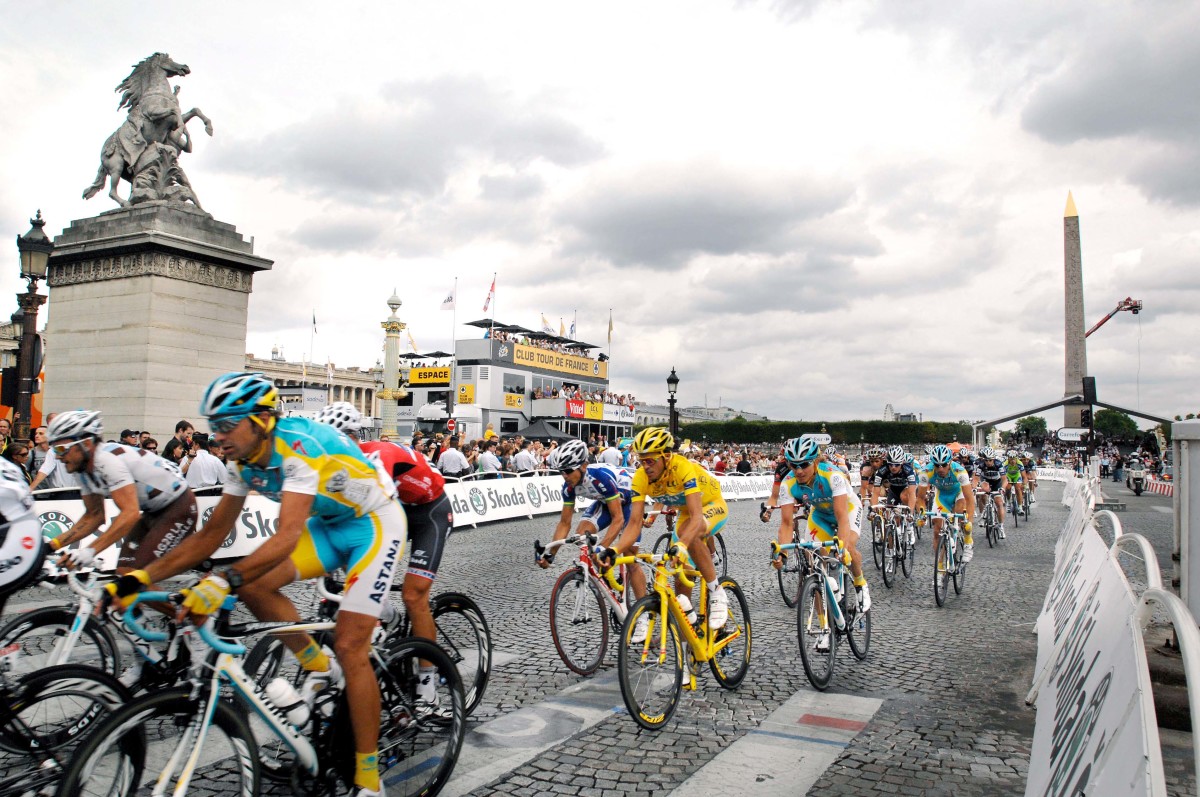
The Tour De France Route
The 2024 Tour de France is set to make history with its inaugural Grand Départ from Italy, marking the 26th time the race has started outside France. For the first time ever, due to the Olympic and Paralympic Games in Paris, the race will divert from its traditional Parisian finale to conclude in Nice.
The 2024 route includes:
- Two-time trials, totaling 59km, with the second on the final Monaco>Nice stage. This unique finale hasn’t been seen for 35 years, harking back to the memorable Fignon – LeMond duel in 1989.
- The race will traverse four mountain ranges: the Apennines in Italy, the Italian and French Alps, Massif Central, and the Pyrenees.
- The tour will span four countries: Italy, San Marino, Monaco, and France, passing through 7 French regions and 30 departments.
- Riders will compete for bonus points awarded at strategic route points, alongside the traditional time bonuses at road stage finishes.
- The tour will introduce 12 new stage towns, including Florence, Rimini, and Bologna.
- Stage nine will feature 14 sectors on white roads, totaling 32km.
- There will be 21 stages in total, categorized as 8 flat, 4 hilly, 7 mountain stages with 4 summit finishes, and 2 time trials, alongside 2 rest days.
- The race will commence with 176 riders across 22 teams.
- The highest elevation will be the Bonette Pass in the Alps at 2802 meters.
- The total vertical gain of the tour is set at 52,230 meters.
- Prize money totaling 2.3 million euros, with €500,000 awarded to the overall individual winner.
The Tour De France Stages
The 2024 Tour de France, starting on June 29 and ending on July 21, will go on an unprecedented route, marking a deviation from its iconic Paris finish.
Key Stages and Highlights:
- Stage 1 (June 29): The journey starts in Florence, going through Tuscany and Emilia-Romagna, ending in a coastal finish in Rimini. This stage includes an excursion into San Marino, increasing the tally of countries visited by the Tour.
- Stage 2 (June 30): Beginning in Cesenatico, the route leads to Bologna, offering challenging climbs.
- Stage 3 (July 1): A sprinter-friendly stage from Piacenza to Turin, a familiar finish in the Giro d’Italia.
- Stage 4 (July 2): The peloton confronts the colossal Galibier at 2642m.
- Stage 5 (July 3): A sprint finish is expected from St-Jean-de-Maurienne to Saint-Vulbas.
- Stage 6 (July 4): Another sprint-centric stage from Macon to Dijon.
- Stage 7 (July 5): A 25km Individual Time Trial through Burgundy’s vineyards.
- Stage 8 (July 6): A hilly stage from Semur-en-Auxois to Colombey-les-Deux-Eglises.
- Stage 9 (July 7): A challenging day with 14 sectors on white roads around Troyes.
- Rest Day (July 8): A break in Orleans.
Next Set of Stages
- Stage 10 (July 9): Wind may play a crucial role in Orleans to Saint-Amand-Montrond.
- Stage 11 (July 10): A tough mountainous stage with over 4350m of elevation gain.
- Stage 12 (July 11): A likely day for breakaway success from Aurillac to Villeneuve-sur-Lot.
- Stage 13 (July 12): A return to the familiar Tour town of Pau.
- Stage 14 (July 13): The first Pyrenees challenge with well-known climbs.
- Stage 15 (July 14): A demanding day with six climbs on Bastille Day.
- Rest Day (July 15): A pause in Gruissan.
- Stage 16 (July 16): From Gruissan to Nimes, where the Mistral wind could influence the race.
- Stage 17 (July 17): An exciting route for breakaways and climbers alike.
- Stage 18 (July 18): An unpredictable stage from Gap to Barcelonnette.
- Stage 19 (July 19): The penultimate mountain stage includes the formidable Cime de la Bonette.
- Stage 20 (July 20): A mountainous trial from Nice to Col de la Couillole, also the L’Etape du Tour route.
- Stage 21 (July 21): A 35km individual time trial from Monaco to Nice, a unique finish that could be decisive for the yellow jersey.
This unique edition of the Tour de France promises exciting new routes and competitive dynamics, challenging tradition and testing the riders in new ways.
The Teams
The 2024 Tour de France showcases 22 incredible teams, each with eight riders, culminating in a total of 176 competitors. This assembly includes the elite 18 WorldTour teams along with four second-tier teams, selected by the Amaury Sport Organisation (ASO) for their prowess and potential.
Team Dynamics and Strategies:
- Team Leadership: Each team centers around a designated leader, with varying ambitions. While not all aim for the pinnacle of overall victory, each leader’s role is pivotal, guiding the team’s strategy and focus.
- Specialized Roles: Teams often include specialists such as time trial experts or sprinters. However, the core strategy revolves around supporting the team leader. This support is provided by the domestique, dedicated riders whose role is crucial in helping the leader to achieve their goals.
- Budget and Performance: The inconsistency in team budgets is clear, with well-funded teams like Ineos Grenadiers and Jumbo-Visma often securing top-tier talent, and frequently dominating the overall standings. These financial powerhouses contrast with the less dominant teams, who often aim for stage victories or capitalize on breakaways to gain media exposure and accolades.
The 2024 Tour de France not only the endurance and skill of individual riders but also the collective strategy and resilience of each team, making it a compelling spectacle of team dynamics and competitive cycling.
The Quest for the Yellow Jersey: General Classification Contenders
The most coveted accolade in the 2024 Tour de France is the yellow jersey, symbolizing the overall race leader. This prestigious jersey is known to change hands multiple times throughout the grueling race.
Strategies and Skills of GC Riders:
- Emergence in the Pyrenees: The first significant challenge for General Classification (GC) contenders typically arises in the Pyrenees, particularly during Stages 5 and 6. This early display of strength and strategy can be a critical factor in the race for the yellow jersey.
- Tactical Patience: Given the extended duration needed to defend the yellow jersey, GC riders often use a strategy of patience, choosing to make their decisive moves later in the race as it progresses into the demanding Alps. This allows them to conserve energy and assess their rivals in the earlier stages.
- All-Round Proficiency: To be a contender for the overall win, GC riders must excel in all aspects of cycling. More importantly, their prowess in climbing and securing victories in high mountain stages is vital for getting a strong position in the overall standings.
- Time Trialling Skills: Despite a reduced emphasis on time trials in this year’s Tour, proficiency in racing against the clock remains a critical skill for GC riders. A subpar performance in time trials can significantly impact their position in the overall classification.
In the 2024 Tour de France, the battle for the yellow jersey is not just a test of physical endurance and cycling skill, but also strategic judgments and timing, as riders go through the complex dynamics of this race.
Recent Trends and Historical Dominance:
- The Yellow Jersey’s Journey: In the previous Tour, three riders had the honor of donning the yellow jersey. Historically, France leads the pack with a remarkable 728 yellow jerseys, followed by Belgium’s 439 and Italy’s 212. Spain and Great Britain are the other nations surpassing the hundred mark in this regard.
- American Pride: Greg LeMond, an American cycling icon, wore the yellow jersey 22 times, clinching the Tour de France in 1986, 1989, and 1990. He represents 76% of the US’s total in this category, excluding disqualified results.
- Record-Holders: Eddy Merckx of Belgium stands at the pinnacle with an unmatched 96 yellow jerseys. Frenchman Bernard Hinault follows with 75. Among active cyclists, Chris Froome leads with 59 appearances in yellow, significantly ahead of Jonas Vingegaard’s 27.
The Thrill of Sprint Stages: A Spotlight on Sprinters
In the 2024 Tour de France, while the General Classification contenders vie for the overall title, sprinters compete for their moment of glory in flat stages. These powerful riders, known for their explosive speed, play a pivotal role in adding excitement to the race.
The Dynamics of Sprint Finishes:
- Sprinters’ Domains: Flat stages with broad, level endings are where sprinters shine. They possess the ability to produce remarkable power bursts, essential for the frantic dash to the finish line.
- The Lead-Out Train: Sprinters typically can’t sustain their peak power for long and thus depend on their teammates, known as the lead-out train. These riders help position the sprinter optimally for the final surge.
- Mark Cavendish’s Legacy: A prime example is Mark Cavendish, a legendary figure in sprinting with 34 Tour de France stage wins, matching Eddy Merckx’s record. In 2024, Cavendish will go on his farewell tour, aiming to surpass this historic milestone before retirement.
- Risks of Sprinting: Sprint finishes are filled with danger due to high speeds and dense rider clusters. Crashes are not uncommon. However, the race rules offer some protection, ensuring riders caught in the last 3km crashes are not penalized in the overall standings.
The Green Jersey Race: Points Classification
- Sprinters’ Secondary Goal: Sprinters also compete for the Points Classification, donning the coveted green jersey. This competition involves accumulating points through high placements in flat stages and intermediate sprints.
- Mountain Stage Strategy: Sprinters generally struggle in the mountain stages. Some may choose to leave the race after achieving stage victories. Those who continue often band together in the ‘Autobus’, pacing each other through the challenging ascents.
- Against the Clock: Despite their struggles in the mountains, sprinters must finish within a set time limit to avoid disqualification. This adds an extra layer of strategy and urgency to their race.
In the 2024 Tour de France, the sprinters’ battles promise to be as thrilling as the contest for the yellow jersey, offering spectators the spectacle of high-speed finishes and strategic racing.
Points Classification
In the Tour de France, the Points Classification is a fierce competition where riders accumulate points based on their stage finishes. This tally, crucial for sprinters, is often a deciding factor for the Points Classification title, as flat stages yield higher points.
Points Allocation: A Sprinter’s Advantage
- Flat Stages: Winners receive a lucrative 50 points.
- Hilly Stages: Victory brings 30 points.
- Mountain Stages: Conquering these stages awards 20 points.
- Penalties: Points can be deducted for rule infractions, sometimes resulting in a negative total for a stage.
While American cyclists have shown prowess, they have yet to clinch the top spot in this classification, with Greg LeMond (1985) and Davis Phinney (1988) both securing second place.
Recent Champions of the Points Race
A look at the last decade reveals the dominance and consistency of sprinters in this classification.
- 2023: Jasper Philipsen (BEL) – 377 points, Runner-Up: Mads Pedersen (DEN) – 258 points
- 2022: Wout van Aert (BEL) – 480 points, Runner-Up: Jasper Philipsen (BEL) – 286 points
- 2021: Mark Cavendish (GBR) – 337 points, Runner-Up: Michael Matthews (AUS) – 291 points
- 2020: Sam Bennett (IRL) – 380 points, Runner-Up: Peter Sagan (SVK) – 284 points
- 2019: Peter Sagan (SVK) – 316 points, Runner-Up: Caleb Ewan (AUS) – 248 points
- 2018: Peter Sagan (SVK) – 477 points, Runner-Up: Alexander Kristoff (NOR) – 246 points
- 2017: Michael Matthews (AUS) – 370 points, Runner-Up: André Greipel (GER) – 234 points
- 2016: Peter Sagan (SVK) – 470 points, Runner-Up: Marcel Kittel (GER) – 228 points
- 2015: Peter Sagan (SVK) – 432 points, Runner-Up: André Greipel (GER) – 366 points
- 2014: Peter Sagan (SVK) – 431 points, Runner-Up: Alexander Kristoff (NOR) – 282 points.
This list not only highlights the talents of the individual riders but also showcases the sprinters’ strategic mastery in accumulating points across varied stages of the Tour de France.
Puncheurs: Masters of the Less Mountainous Terrain
In the 2024 Tour de France, a distinct category of riders called puncheurs will look for their moments of triumph. These athletes, while not the strongest climbers to clinch the overall race, possess the prowess to dominate stages that are less mountainous but still challenging.
Profile of Puncheurs:
- Strengths: Puncheurs are characterized by their ability to generate significant power, allowing them to break away from the peloton or triumph in short uphill finishes. These are common in the early and mid-race hilly stages.
- Versatility: They have a knack for outperforming sprinters on complex finishes, thanks to their blend of speed and power.
- Iconic Puncheurs: Peter Sagan, a legend in this category, has used his punchy finish capabilities and strategic intermediate sprints to win the points classification in seven Tours de France, including 12 stage victories.
- Emerging Stars: As Sagan approaches the end of his career, riders like Mathieu van de Poel and Wout van Aert are coming up as his successors. Van Aert has shown versatility across various terrains, which led to his early leadership in 2022 and eventually securing the green jersey.
In the 2024 Tour de France, the puncheurs are set to play a pivotal role. Their ability to shine in less mountainous but still challenging terrains adds a layer of unpredictability and excitement, making them riders to watch as they vie for stage victories and glory.
The Art of Climbing in the 2024 Tour de France
In the 2024 Tour de France, a unique battle will begin for the climbers, encapsulated in the prestigious King of the Mountains competition, with the coveted polka dot jersey awaiting the leader. This contest celebrates the prowess of those who excel in ascending the toughest gradients the race offers.
Key Aspects of the Climbing Competition:
- Climb Classification: Climbs during the road stages are categorized from Category 4 to Category 1. The most daunting ascents, typically found in the high mountains, receive the distinguished HC (Hors Categorie) rating, showing a challenge beyond standard categorization.
- Points System: Climbers earn King of the Mountains (KOM) points based on their arrival order at the summits, with points varying according to the climb’s difficulty level.
- GC Contenders as Climbers: While the competition often attracts pure climbers, it’s not uncommon for General Classification contenders to concurrently vie for the polka dot jersey. Such was the case with Vingegaard in the previous year, who clinched the King of the Mountains title en route to his overall victory.
As the peloton takes on the diverse and challenging elevations of the 2024 Tour de France, the climbers’ segment is set to be a thrilling spectacle. The race will not just test their climbing skills but also their strategic plan to accumulate points across various terrains, adding a dynamic layer to the overall competition.
Ascending to Victory: Points and Categories
Points are awarded to the first riders reaching mountain summits.
Mountain stages are categorized by difficulty, with more points for tougher ascents.
French riders have historically dominated this category, with Richard Virenque achieving a record seven titles. Spaniard Federico Bahamontes and Belgian Lucien Van Impe are close behind. For the USA, Andrew Hampsten’s second place in 1988 remains the highest achievement.
Recent Masters of the Mountain
Let’s look at the last decade’s heroes of the high peaks.
- 2023: Giulio Ciccone (Italy) – Team Lidl–Trek
- 2022: Jonas Vingegaard (Denmark) – Team Jumbo–Visma
- 2021: Tadej Pogačar (Slovenia) – UAE Team Emirates
- 2020: Tadej Pogačar (Slovenia) – UAE Team Emirates
- 2019: Romain Bardet (France) – AG2R La Mondiale
- 2018: Julian Alaphilippe (France) – Quick-Step Floors
- 2017: Warren Barguil (France) – Team Sunweb
- 2016: Rafał Majka (Poland) – Tinkoff
- 2015: Chris Froome (Great Britain) – Team Sky
- 2014: Rafał Majka (Poland) – Tinkoff–Saxo
This list not only celebrates the climbers’ achievements but also mirrors the evolving strategies and intensities of mountain stages in the Tour de France.
The Unseen Heroes: Domestiques in the 2024 Tour de France
Although it sounds like a mild term in the cycling world, ‘domestiques’ refers to those cyclists whose contribution is key to the triumphs of their leaders. Such riders are very talented on an individual basis and will sacrifice their personal goals for the benefit of the squad.
The Evolution of a Domestique:
From Support to Spotlight: Reflecting on the 2021 Tour de France, Jonas Vingegaard’s journey is a perfect example. Initially a domestique for Jumbo-Visma’s leader Primož Roglič, Vingegaard stepped up to take the second place after Roglič’s withdrawal. In 2022, Vingegaard emerged from being a support rider to clinch victory in the overall race, a feat he is highly anticipated to repeat in 2024, especially after triumphing in the Critérium du Dauphiné.
The Vital Role of Domestiques:
- Protectors and Strategists: Domestiques are tasked with safeguarding their leader, strategically positioning them within the race, and ensuring their needs for nourishment and hydration are met. They play a critical role in pacing the leader back to the main group in case of mishaps like crashes or mechanical issues.
- Setting the Pace: Often seen at the forefront of the peloton, domestiques set the race’s tempo, particularly vital during challenging stages.
- Specialist Domestiques: Within this group, some domestiques specialize further. Climbing domestiques are invaluable in the mountainous stages, assisting and pacing their General Classification (GC) leaders, and sometimes seizing stage victories themselves. Similarly, sprint teams rely on domestiques to form a tactical lead-out train for their sprinter leaders.
The 2024 Tour de France is set to showcase the contribution of these unsung heroes. Their efforts, often behind the scenes, are instrumental in shaping the dynamics and outcomes of the race.
Tour de France’s Rising Stars: The Young Rider Classification
Since its establishment in 1975, the Tour de France’s Young Rider Classification has been spotlighting the sport’s future champions. This award is presented to the best-performing young cyclist in the general classification. To qualify, riders must be no older than 25 years, with the leading young rider donning the distinguished ‘White Jersey.’
U.S. Success in Youth
The United States has seen notable triumphs in this category. Greg LeMond (1984), Andrew Hampsten (1986), and Tejay van Garderen (2012) are the American riders who have clinched this honor.
A Decade of Young Talents
Looking back at the previous decade, here are the best budding young cyclists for the Tour de France.
- 2023: Tadej Pogačar (Slovenia) – UAE Team Emirates, 2nd in GC
- 2022: Tadej Pogačar (Slovenia) – UAE Team Emirates, 2nd in GC
- 2021: Tadej Pogačar (Slovenia) – UAE Team Emirates, 1st in GC
- 2020: Tadej Pogačar (Slovenia) – UAE Team Emirates, 1st in GC
- 2019: Egan Bernal (Colombia) – Team Ineos, 1st in GC
- 2018: Pierre Latour (France) – AG2R La Mondiale, 13th in GC
- 2017: Simon Yates (Great Britain) – Orica–Scott, 7th in GC
- 2016: Adam Yates (Great Britain) – Orica–BikeExchange, 4th in GC
- 2015: Nairo Quintana (Colombia) – Movistar Team, 2nd in GC
- 2014: Thibaut Pinot (France) – FDJ.fr, 3rd in GC
The young riders that have won the white jersey and made a mark on the future of racing. It also shows promise for what the future holds for them in professional cycling.
Recent Tour de France Victors
A look at the last ten Tour de France winners showcases the evolution and competitive nature of this grand event.
- 2023: Jonas Vingegaard, Team Jumbo–Visma: 82h 05′ 42″, + 7′ 29″, 1 stage win
- 2022: Jonas Vingegaard, Team Jumbo–Visma: 79h 32′ 29″, + 2′ 43″, 2 stage wins
- 2021: Tadej Pogačar, UAE Team Emirates: 82h 56′ 36″, + 5′ 20″, 3 stage wins
- 2020: Tadej Pogačar, UAE Team Emirates: 87h 20′ 13″, + 59″, 3 stage wins
- 2019: Egan Bernal, Team Ineos: 82h 57′ 00″, + 1′ 11″, no stage win
- 2018: Geraint Thomas, Team Sky: 83h 17′ 13″, + 1′ 51″, 2 stage wins
- 2017: Chris Froome, Team Sky: 86h 20′ 55″, + 54″, no stage win
- 2016: Chris Froome, Team Sky: 89h 04′ 48″, + 4′ 05″, 2 stage wins
- 2015: Chris Froome, Team Sky: 84h 46′ 14″, + 1′ 12″, 1 stage win
- 2014: Vincenzo Nibali, Astana: 89h 59′ 06″, + 7′ 37″, 4 stage wins
These champions represent the pinnacle of physical and mental fortitude, etching their names in the annals of the Tour de France with each pedal stroke.
Tour de France’s Team Excellence: The Team Classification
The Tour de France’s Team Classification, introduced in 1930, celebrates the collective strength and performance of cycling teams. In this classification, the focus shifts from individual prowess to team strategy and collaboration. Unlike individual classifications, the leading team in this category is recognized by yellow backgrounds on their rider numbers instead of a distinct jersey.
The dominance of Movistar and American Teams
The Spanish Movistar Team has been particularly successful in recent years, clinching five titles in the last nine editions. American teams have also shown remarkable performance, particularly between 2007 and 2012. This era saw the Discovery Channel team’s victory in 2007, followed by consecutive wins by Team RadioShack (2010), Garmin–Cervélo (2011), and RadioShack–Nissan (2012).
Past Decade’s Top Teams
Here’s a glance at the teams that have mastered the art of unity and tactics in the Tour de France over the past ten years:
- 2023: Team Jumbo–Visma (Netherlands)
- 2022: Ineos Grenadiers (United Kingdom)
- 2021: Team Bahrain Victorious (Bahrain)
- 2020: Movistar Team (Spain)
- 2019: Movistar Team (Spain)
- 2018: Movistar Team (Spain)
- 2017: Team Sky (United Kingdom)
- 2016: Movistar Team (Spain)
- 2015: Movistar Team (Spain)
- 2014: Ag2r–La Mondiale (France)
These victories are a testament to the strategic depth and collaborative efforts of each team, proving that in the world of professional cycling, unity is just as important as individual talent.
Tour de France’s Spirit of Resilience: The Super Combativity Award
The Super Combativity Award in the Tour de France is a unique accolade that goes beyond mere statistics. It’s an honor given by a selected jury, recognizing a rider’s exceptional fighting spirit and relentless drive. Unlike other awards based on points or general classification standings, this one celebrates the rider’s tenacity, often evident in their frequent involvement in breakaways and attacking maneuvers.
American Riders and Dominance of French and Belgian Cyclists
While American cyclists have yet to clinch this special award, French and Belgian riders have frequently been lauded for their spirit. The award celebrates riders who embody the heart and soul of competitive cycling through their daring and aggressive racing style.
Recent Recipients of the Super Combativity Award
A look at the last decade’s recipients reveals a roster of cyclists who have shown extraordinary courage and endurance:
- 2023: Victor Campenaerts (Belgium) – Lotto–Dstny
- 2022: Wout van Aert (Belgium) – Team Jumbo–Visma
- 2021: Franck Bonnamour (France) – B&B Hotels p/b KTM
- 2020: Marc Hirschi (Switzerland) – Team Sunweb
- 2019: Julian Alaphilippe (France) – Deceuninck–Quick-Step
- 2018: Dan Martin (Ireland) – UAE Team Emirates
- 2017: Warren Barguil (France) – Team Sunweb
- 2016: Peter Sagan (Slovakia) – Tinkoff
- 2015: Romain Bardet (France) – AG2R La Mondiale
- 2014: Alessandro De Marchi (Italy) – Cannondale
All these remarkable riders have made their unique mark on the Tour de France through both their raw strength to ride at such an exhaustive pace and mental persistence to surpass competitors in the event itself.
Tour de France Bitcoin Betting Guide: Understanding the Odds
Betting on Individual Stages
Similar to predicting the overall race winner, betting on individual stages of the Tour de France offers an exciting opportunity for fans and Bitcoin bettors. Each stage presents its own set of challenges and dynamics, with moneyline odds available for every competitor. The odds reflect the likelihood of each cyclist winning that specific stage, with lower odds indicating a higher chance of victory.
Exploring Prop Bets in Tour de France
For those looking for a more unique Bitcoin betting experience, Tour de France prop bets offer an interesting alternative. These bets focus on smaller groups of racers or head-to-head matchups, asking bettors to pick which cyclist will outperform another. It’s important to note that these types of bets are less commonly found and usually become available close to the race start.
Navigating Through Controversies in the Tour de France
The Shadow of Performance-Enhancing Drugs
The use of PEDs, such as steroids, human growth hormones, as well as blood doping, has been widely associated with professional cycling. As expected, such issues have not spared the Tour de France which remains the leading cycling brand. Notably, in some situations, winning a race has had the titles stripped off given that they failed on drug tests.
The most notable example of this was the one involving Lance Armstrong, a big name in this sport, who eventually had to forfeit the title of the 2014 Tour de France as the subsequent examination revealed an excessive amount of blood-doped activity. The revelation after Armstrong’s confession constitutes an important part of the race’s history.
Early Days Fraught with Challenges
Going back to the early days of the Tour de France, the event was riddled with its own set of challenges, including sabotage attempts and physical assaults on cyclists by local gangs. These early controversies form a stark contrast to the current state of the race, which boasts stricter regulations and more rigorous oversight to uphold the integrity of this esteemed cycling competition.
Bitcoin Betting on the Tour de France
Bitcoin, one of the biggest and most popular digital currencies, has completely changed how we engage with sports betting, offering a blend of security, speed, and simplicity. As you prepare to experience the thrill of one of the most incredible cycling events, discover how Bitcoin can improve your betting with its unique advantages, including more privacy, rapid transaction processing, and global accessibility. Betting with Bitcoin adds a modern and effective twist to your crypto sports betting experience.
Featured Bitcoin Tour de France Betting Site
BC.Game Welcome Bonus
180% up to $20,000 First Deposit Bonus
Setting Up for Bitcoin Betting
Getting started on your Bitcoin betting adventure begins with setting up a digital wallet. Here’s how to get started:
- Choose a Bitcoin Wallet: Select a reputable and secure Bitcoin wallet. Consider wallets like Coinbase, and Binance, or hardware options like Ledger for stronger security.
- Acquire Bitcoins: Purchase Bitcoin through exchanges, or consider peer-to-peer platforms. Make sure you review the transaction fees and exchange rates.
- Select a Bitcoin-Friendly Sportsbook: Research and choose a GOSUBETTING recommended sportsbook that accepts Bitcoin and offers comprehensive coverage of the Tour de France. Look for factors like security features, customer support, and betting options.
- Secure Your Digital Assets: Use strong passwords, enable your two-factor authentication, and consider using a hardware wallet for added security.
Making Deposits and Placing Bets
Depositing Bitcoin into your sportsbook account is easy with our steps below:
- Deposit Bitcoin: Head over to the deposit section of your chosen crypto sportsbook, select Bitcoin as your deposit method, and transfer Bitcoin from your wallet to the sportsbook’s address.
- Understand Betting Options: Explore different betting options for the Tour de France, such as outright winner, stage victors, time trials, and prop bets.
- Place Your Bets: With your account funded, you’re ready to place your bets. Choose your preferred betting markets and enter your bet in Bitcoin.
Withdrawing Winnings in Bitcoin
Cashing out your winnings in Bitcoin is just as easy:
- Withdraw to Your Wallet: Request a withdrawal in Bitcoin from the crypto sportsbook to your Bitcoin wallet. Be mindful of withdrawal limits and processing times.
- Manage Your Winnings: Monitor the Bitcoin market to decide if you want to hold onto your Bitcoin, convert it to fiat currency, or reinvest in future bets.
Advantages and Considerations of Bitcoin Betting
Advantages
- Privacy: Bitcoin transactions offer anonymity, keeping your betting activities private.
- Speed: Bitcoin transactions are typically faster than traditional banking methods.
- Worldwide Availability: Bitcoin is not tied to any specific country, making it accessible worldwide.
Considerations:
- Market Volatility: The value of Bitcoin can increase and decrease, affecting your betting budget and winnings.
- Digital Security: Ensure you’re aware of online threats and safeguard your digital wallet.
By understanding these pros and cons of Bitcoin betting for the Tour de France, you can get through the digital betting world with confidence and make the most of this exciting way to enjoy and bet on one of cycling’s most iconic events.
Conclusion
The Tour de France, a beacon of endurance and skill in the world of cycling, meets the cutting-edge technology of Bitcoin. With Bitcoin, experience a new dimension of betting that promises speed, security, and convenience.
Whether you’re rooting for the sprinters in the flat stages, the kings of the mountains, or the overall yellow jersey winner, Bitcoin betting adds an extra layer of excitement to your Tour de France experience. Embrace this innovative approach to crypto sports betting and join the digital revolution, where every pedal stroke and strategic move can be a potential win in your Bitcoin betting journey.
Cycling Events for Bitcoin Betting
Other Sports for Bitcoin Betting
Frequently Asked Questions
-
What is Bitcoin betting on the Tour de France?
-
How do I start betting with Bitcoin on the Tour de France?
-
Are Bitcoin transactions for betting on the Tour de France secure?
-
Can I bet on individual stages of the Tour de France with Bitcoin?
-
How fast are Bitcoin transactions for betting?
-
Do I need to be an expert in cryptocurrencies to bet with Bitcoin?
-
Are there any bonuses for betting on the Tour de France with Bitcoin?
-
How do I withdraw my winnings in Bitcoin?
-
Is betting with Bitcoin on the Tour de France legal?
-
Can market volatility affect my Bitcoin betting on the Tour de France?






















































